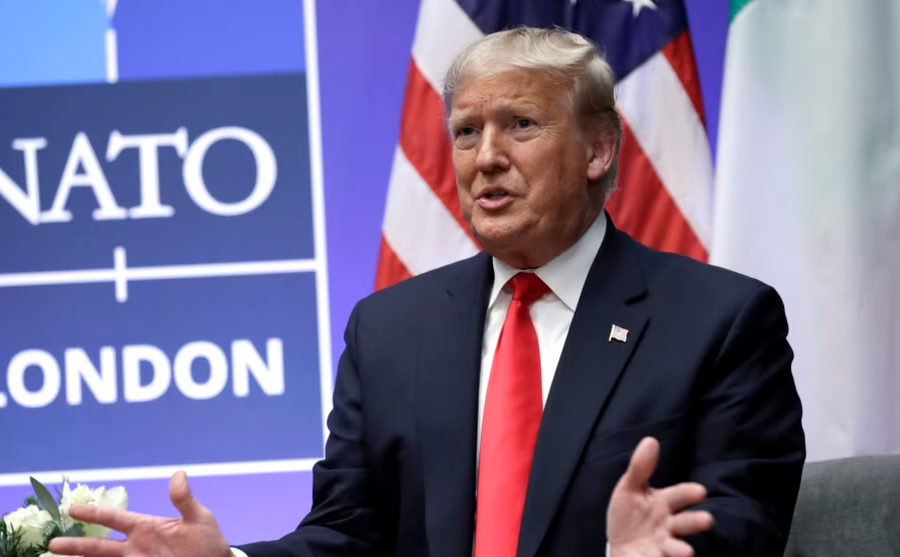
United States President Donald Trump has questioned his willingness to support the Western military alliance, saying he will not come to the aid of NATO allies if they do not pay enough for their defense.
"It makes sense, doesn't it?" Trump told reporters in the Oval Office on Thursday.
"If they don't pay, I won't protect them. No, I won't protect them," he stressed.
Trump underlined that he had shared the same stance with NATO allies during his first term as president, 2017-2021, which had prompted most countries to increase military spending.
But Trump said this spending is insufficient.
"They should pay more," he added.
During his first term, Trump insisted that NATO member countries increase their military spending to 2 percent of gross domestic product (GDP). The 2 percent target was a 2014 pledge to be achieved within the next ten years.
At least 24 countries have met this requirement, although Trump has suggested that the threshold should be raised to 5% of GDP. But many member states have said that would be economically unfeasible.
Only Poland comes close to 5 percent, although Estonia and Lithuania have hinted that they will also increase spending to this extent.
Despite recent stances, Trump in February reiterated his commitment to NATO's Article 5 mutual defense, speaking alongside UK Prime Minister Keir Starmer.
This stance was reiterated several times – both publicly and privately – by US Secretary of Defense Pete Hegseth during a meeting of NATO defense ministers in Brussels in February.
The US has about 100,000 military personnel in Europe, mainly in Germany, Italy and Britain.
NATO was founded by the United States and 11 other countries to counter Soviet aggression after World War II. Today, the alliance has 32 members and includes many countries that were once part of the Soviet Union or under its sphere of influence.
Trump claimed that other countries would not help the US in case of need, despite the fact that the only time Article 5 has been activated was when it was determined that the United States was attacked on September 11, 2001.
"You know what the biggest problem I have with NATO is? I, frankly, know these guys very well. They're my friends. But if the United States were in trouble and we called them up and said, 'We have a problem, France. We have a problem, some others I won't mention.' Do you think they would come and protect us? They would. I'm not so sure," Trump said.
French President Emmanuel Macron responded to Trump, saying: "We are loyal and dedicated allies."
"I think we have the right to expect the same," Macron said, citing historical instances of Franco-American military cooperation dating back to the American Revolutionary War.
France and America "have always been close to each other," he stressed.
On March 5, Macron said he was open to talks about extending France's nuclear umbrella to Paris' allies on the continent, in the face of Russian aggression and concerns about the US stance on defending Europe.
Meanwhile, Trump also suggested using the US's commitment to NATO as a leverage in his trade war, in an attempt to target what he has described as unfair trade policies by European countries./ REL (A2 Televizion)











